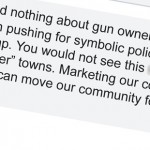Picking the Monopoly Among Government Schools
Linda Borg reports in the Providence Journal that the Chariho regional school district has been permitted to continue in its suit against the State of Rhode Island for allowing additional career and technical centers in the region, allegedly in breach of their agreement:
… Chariho filed suit in Superior Court alleging that the education department had breached its contract by approving similar vocational programs at Westerly and Narragansett High Schools. Chariho also sought a permanent injunction to prohibit the state from authorizing other career and tech centers in the region.
Chariho has long complained that Wagner’s efforts to expand school choice have hurt preexisting vocational programs. Wagner, in an effort to promote Gov. Gina Raimondo’s support for career and technical education, has encouraged traditional high schools to open their own career and tech programs.
The outcome of the lawsuit is probably going to hinge on whether a program opened at an existing high school counts as a “center.” Chariho cares, as Superintendent Barri Ricci makes clear in the article, because the district must pay another district if students within its boundaries choose to cross those boundaries for a particular program. Though more difficult to track, the district also loses revenue to the extent students from other districts decide to stay within their own boundaries for similar programs.
[box type=”tick” style=”rounded”]Please consider a voluntary, tax-deductible subscription to keep the Current growing and free.[/box]
Contract provisions aside, the case illustrates a broader point about government services. Chariho is claiming a contractual right to a monopoly on career and technical training within the public school system in that area. If families want to pay extra to send children to private academies, the district has little say. It is only because we’ve set up this system of schools for which we insist students’ families can’t be expected to pay that this is an issue.
Most within-government school choice — notably charter schools — takes the form of the public sector competing with the private sector. Taxpayers are simply forced to pay for the education services for which families would otherwise have had to pay, giving government schools a massive advantage in attracting customers.
When the competition is between government schools, however, choices become subject to the political process. The state government gets to decide what choices families have and what government agencies get the monopoly advantages.




